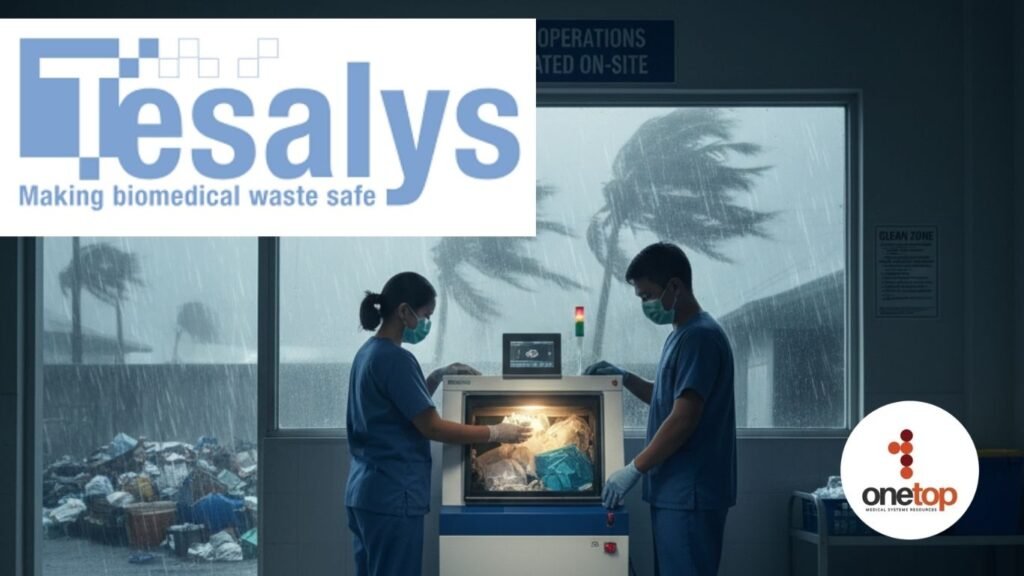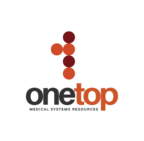Disaster-Ready Waste Management: Building Resilience With Onsite Treatment Systems
Every year, local governments across the Philippines face the reality of disasters — from typhoons and floods to volcanic eruptions and earthquakes. These events don’t just damage infrastructure and displace communities; they also disrupt the daily operations of health facilities. One of the least-discussed but most critical challenges in such times is managing the surge of infectious medical waste.
When waste piles up uncollected, or hauling contracts are delayed by impassable roads and flooded routes, the risk of secondary infections rises dramatically. For Municipal Health Officers and Mayors, ensuring that hospitals and rural health units can continue safe waste treatment even in emergencies is a matter of public safety and governance accountability.
The Weak Point in Current Systems
Most health facilities still rely on offsite medical waste hauling. Under normal conditions, this arrangement can function well. But during disasters, logistics break down:
Roads become impassable — trucks cannot collect waste on schedule.
Hauling capacity shrinks — demand spikes as multiple facilities generate more infectious waste.
Storage becomes dangerous — stockpiled waste raises infection and contamination risks inside facilities.
The very moment when the public most depends on health facilities — during a disaster — is often when waste systems fail.
Why Onsite Treatment Matters in Emergencies
Onsite waste treatment changes this equation. By equipping hospitals, ABTCs, and rural health units with the capacity to treat their own waste at source, local governments can:
Maintain Operations During Disruptions
Even if transport networks collapse, facilities continue treating waste safely.Prevent Secondary Health Risks
Eliminates the buildup of infectious sharps, PPE, and biological waste during high-risk periods.Build Institutional Resilience
Facilities become less dependent on external haulers, creating a self-reliant system.Support Disaster Recovery
By treating waste onsite, facilities can focus resources on patient care rather than scrambling for hauling solutions.
Onsite treatment is not just a technical solution — it is a resilience strategy that protects communities when they are most vulnerable.
Tesalys Autoclaves: Designed for Resiliency
Through One Top Medical Systems Resources (OTMSR), LGUs in the Philippines can now access Tesalys medical waste autoclaves, a globally recognized solution for onsite treatment.
Key advantages for disaster readiness include:
Compact and Portable Systems – Can be installed even in smaller rural facilities.
Rapid Sterilization – Treats infectious waste in cycles of less than an hour.
Plug-and-Play Simplicity – No complex installation; staff can be trained quickly.
Environmentally Safer – Avoids burning, emissions, and toxic residues associated with incineration.
By investing in Tesalys systems, distributed locally by OTMSR, LGUs ensure that their health facilities are not left vulnerable when disaster strikes.
Governance and Compliance Dimensions
Disaster readiness is not only about logistics — it is also about legal compliance and accountability. National laws like:
RA 6969 (Toxic Substances and Hazardous and Nuclear Wastes Control Act),
RA 9003 (Ecological Solid Waste Management Act), and
RA 8749 (Philippine Clean Air Act)
all impose strict obligations on LGUs and health facilities to manage waste safely and sustainably.
In times of disaster, these obligations do not disappear. In fact, public scrutiny is higher. Communities expect leaders to show foresight. Onsite treatment with Tesalys autoclaves allows LGUs to remain compliant, even when offsite systems fail.
One Top Medical Systems Resources: Partnering for Resilience
One Top Medical Systems Resources has positioned itself as a partner for LGUs in strengthening local health systems. By distributing Tesalys autoclaves, OTMSR is not only introducing new technology — it is bringing a resilience framework for medical waste management into the Philippines.
OTMSR works with health facilities and local governments to:
Identify vulnerabilities in existing waste management systems.
Deploy onsite autoclaves tailored to facility size and waste volume.
Train staff to ensure safe, compliant operations even in emergency scenarios.
This approach ensures that LGUs are not just reacting to disasters but are prepared long before they strike.
A Call to Action for LGUs
Disasters are inevitable. But preventable secondary crises — such as uncontrolled medical waste — should never be part of the story. By investing in onsite waste treatment, LGUs demonstrate leadership, foresight, and accountability.
For Municipal Health Officers and Mayors, the decision is clear: equip your health facilities today with Tesalys autoclaves, distributed by One Top Medical Systems Resources, and build a disaster-ready medical waste system your community can depend on.




